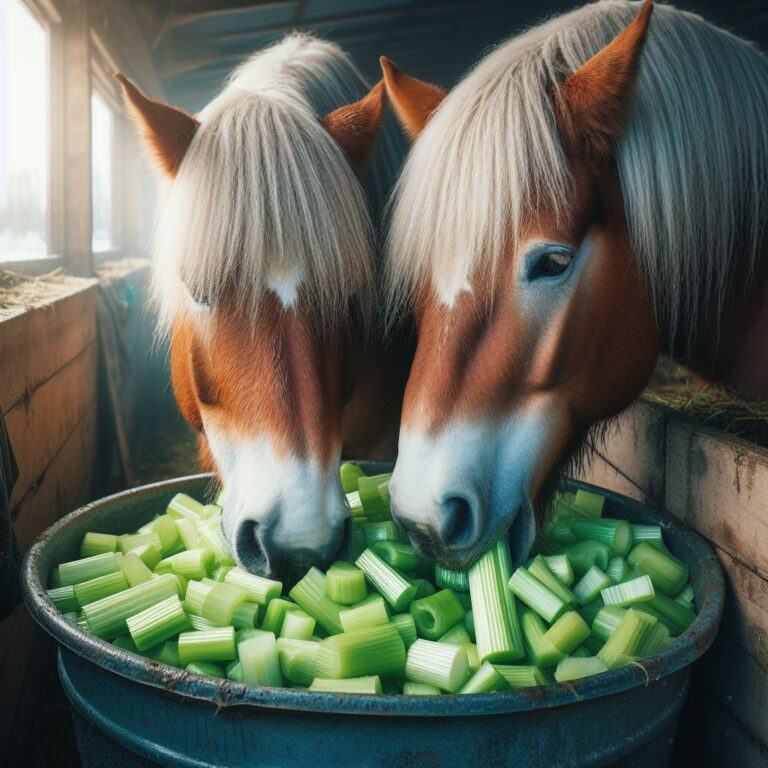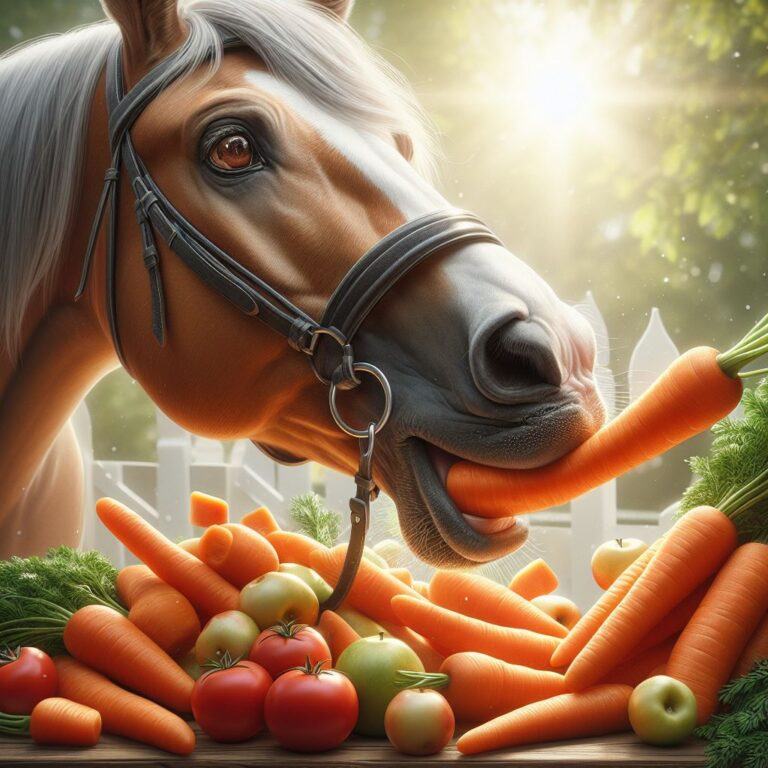Can Horses Safely Eat Sweet Potato
Yes, horses can safely eat sweet potatoes in moderation as part of a balanced diet. Sweet potatoes are not toxic to horses and can provide several nutritional benefits when given in appropriate portions. They are an excellent source of vitamins A, C, and B6, as well as potassium, manganese, and copper.
However, as a responsible horse owner, it’s crucial to understand your equine companion’s dietary needs and the potential risks of introducing new foods.
Sweet potatoes are root vegetables rich in vitamins, minerals, and fiber, making them a potentially valuable addition to a horse’s diet. Additionally, sweet potatoes are high in fiber, supporting a horse’s digestive health and overall well-being.
Potential Benefits of Sweet Potatoes for Horses
Energy Source: Sweet potatoes are a carbohydrate-rich food, which can provide horses with a sustained energy source. This can be particularly beneficial for performance horses or those engaging in strenuous activities.
Digestive Health: The high fiber content in sweet potatoes can aid in maintaining a healthy digestive system in horses. Fiber supports regular bowel movements and can help prevent issues like colic and impaction.
Anti-inflammatory Properties: Sweet potatoes contain antioxidants like beta-carotene, which may help reduce inflammation in horses, particularly in their joints and muscles.
Coat and Hoof Health: The vitamins and minerals found in sweet potatoes, such as vitamin A and copper, can contribute to a healthy coat and strong hoofs in horses.
Risks and Moderation
While sweet potatoes can offer several benefits, it’s essential to practice moderation when incorporating them into a horse’s diet.
Overfeeding sweet potatoes or any other carbohydrate-rich food can lead to potential risks, such as:
Obesity: Excess calorie intake from sweet potatoes can cause weight gain and obesity in horses, leading to various health issues.
Digestive Problems: Introducing sweet potatoes too quickly or in large quantities can disrupt the delicate balance of a horse’s gut microbiome, causing digestive distress, colic, or laminitis.
Glycemic Response: Sweet potatoes have a relatively high glycemic index, which means they can cause a rapid spike in blood sugar levels if consumed in excess.
To mitigate these risks, following portion control guidelines and feeding sweet potatoes as an occasional treat or supplement, rather than a primary part of a horse’s diet is crucial.
Preparing and Serving Sweet Potatoes
When introducing sweet potatoes to your horse’s diet, it’s best to start with small amounts and gradually increase the portion size while monitoring for any adverse reactions. Here are some tips for preparing and serving sweet potatoes:
Sweet potatoes should always be cooked before feeding them to horses. Baking or boiling are the preferred methods, as they help break down the starches and make the sweet potatoes easier to digest.
A general guideline is to limit sweet potato portions to no more than 1-2 pounds per 1,000 pounds of body weight per day.
Sweet potatoes can be mixed with a horse’s regular feed or offered as a standalone treat.
Observe your horse closely after introducing sweet potatoes to their diet. Watch for any signs of digestive discomfort, such as colic, diarrhea, or excessive gas, and adjust the portion size or discontinue feeding if necessary.
Incorporating Sweet Potatoes into a Horse’s Diet
Before making any significant changes to your horse’s diet, it’s always advisable to consult with a qualified veterinarian or equine nutritionist. They can provide personalized recommendations based on your horse’s age, breed, activity level, and overall health.
When introducing sweet potatoes, it’s essential to do so gradually. Start with small portions and monitor your horse’s reaction closely. Any new food should be slowly integrated into their diet over several weeks to allow their digestive system to adjust.
If your horse shows signs of adverse reactions, such as digestive discomfort, lethargy, or changes in behavior, please stop feeding sweet potatoes immediately and consult your veterinarian.
Remember, while sweet potatoes can be a nutritious treat, they should not replace a horse’s primary diet of hay, quality forage, and fresh grass. A balanced diet is crucial for maintaining our horse’s overall health and well-being.
If you’re looking for alternative safe treats and snacks, consider options like:
Carrots, apples, bananas, horse-safe mints or watermelon.
By understanding your horse’s dietary needs, practicing moderation, and monitoring their response to new foods, you can safely incorporate sweet potatoes as an occasional treat while ensuring their continued health and happiness.







